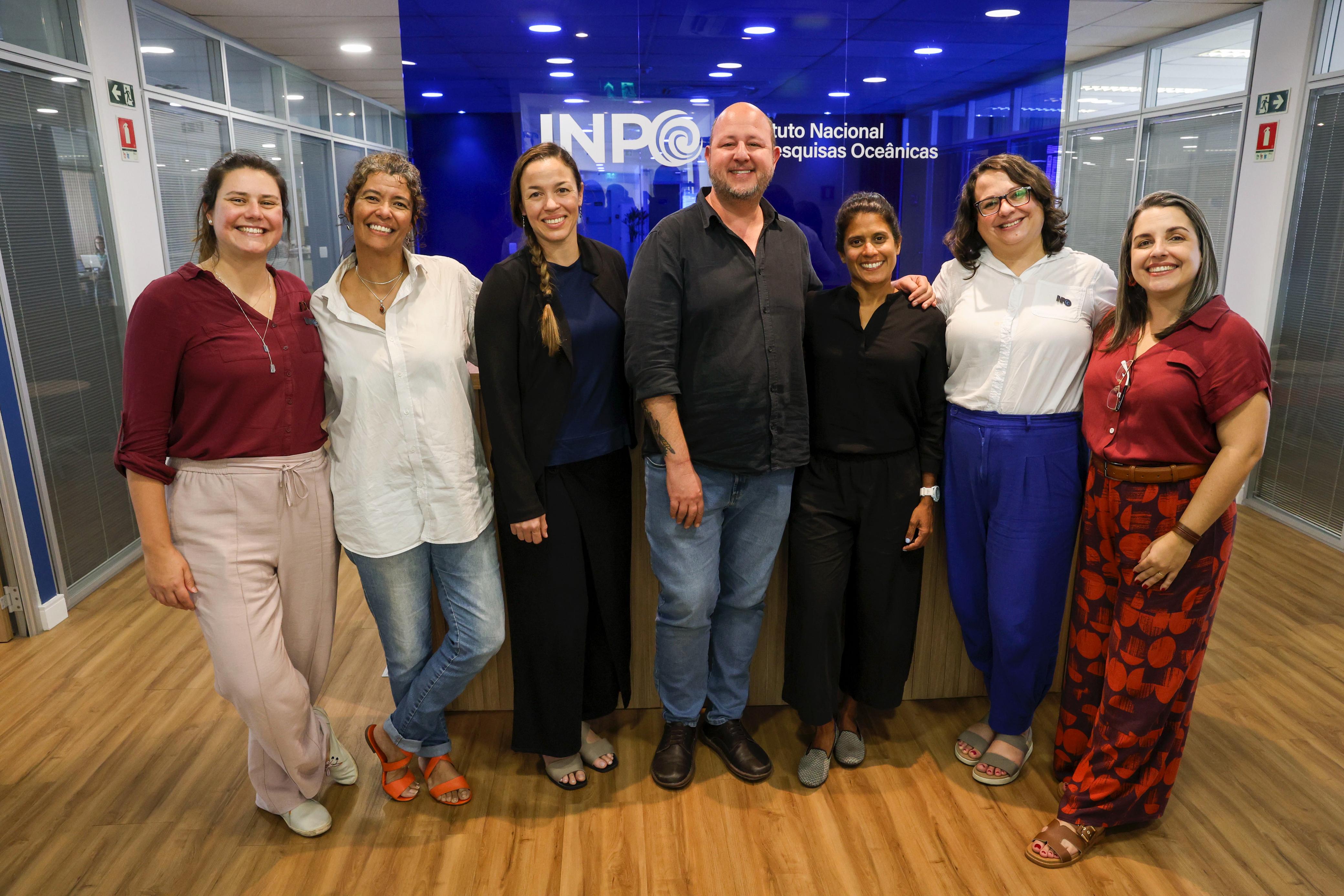Modelling the Future: The All-Atlantic Summer School 2025 in Rio de Janeiro
Early career ocean professionals explored modelling and coastal resilience in Rio, with support from the DCC-CR and its Partner Alliance Network, bringing tools and expertise
Published on 26 September 2025 | Events
The All-Atlantic Summer School 2025, hosted at INPO’s headquarters in Rio de Janeiro from 8 to 12 September, concluded with great enthusiasm and success. The event brought together Early Career Ocean Professionals (ECOPs) from across the Atlantic to strengthen skills and collaborations on Numerical Modelling and Data Analysis Fundamentals: Applications on Coastal Resilience Studies.
Organized within the framework of the OKEANO Project and the All-Atlantic Ocean Research and Innovation Alliance (AAORIA), the Summer School aligned with key priorities of the 2023 All-Atlantic Forum: advancing ocean–climate understanding and enhancing modelling key capacities to support coastal resilience, ecosystems, and biodiversity. Among the contributors, the UN Decade Collaborative Centre for Coastal Resilience and its Partner Alliance Network, played a central role, bringing operational expertise and practical tools to the training programme.
Over five intensive days, participants engaged in a rich program of lectures, hands-on exercises, and technical visits. Topics covered included coastal oceanography, numerical modelling tools, downscaling and data assimilation techniques, and applications of ocean observations. Sessions also addressed pressing issues such as oil spill impacts, One Blue Health approaches, and strategies for community resilience.
Highlight of the school was the special session on operational oceanography led by Professor Nadia Pinardi, who represented the DCC-CR. She was joined by Dr. Francesco Trotta and Dr. Rodrigo Vicente from the CMCC, a member of the DCC-CR’s Partner Alliance Network. Their contribution reflected the broader effort of the PAN to bridge the gap between scientific advances and actionable solutions, by training early career professionals from around the world to apply cutting-edge modelling platforms such as the SURF system to real-world coastal resilience challenges.
Pinardi introduced students to the Structured and Unstructured grid Relocatable ocean platform for Forecasting (SURF) through a lecture on operational oceanography for coastal resilience. This was followed by in-depth demonstrations of the SURF system: Trotta presented the SURF-NEMO platform, while Vicente introduced the SURF-SHYFEM system, providing participants with a comprehensive overview of the tools and approaches available. The session concluded with practical exercises, giving students the opportunity to work directly with the SURF models under expert guidance. The day ended on a reflective note with the screening of The Wall that Weeps the Sea, a documentary by Fernanda Terra Stori, which connected scientific knowledge to cultural and social dimensions of the ocean.
The program also featured insights from international experts including Dr. Mauro Cirano (UFRJ) on the SiMCosta Observing System, Dr. Rodgers Makwinja (ICC, South Africa) on modelling applications, and Dr. Robert Blasiak (Stockholm Resilience Centre) on ocean health and governance. Technical visits to the Federal University of Rio de Janeiro (UFRJ) laboratories and the LAMCE Visualization Centre further enriched the experience, while cultural and social activities in Rio provided opportunities for networking and exchange.
Set against the vibrant backdrop of Rio de Janeiro—a city where breathtaking natural beauty, cultural vitality, and societal contrasts meet—this year’s Summer School unfolded in an environment that itself embodies resilience and transformation. Known worldwide for its iconic landscapes and dynamic history, Rio provided not only a scenic setting but also a meaningful context to reflect on the complex interactions between nature, society, and the ocean.
Within this framework, the Summer School became much more than a technical course. By combining fundamentals of numerical modeling, hands-on training with advanced tools, and discussions on real-world applications, the program offered participants a comprehensive understanding of how science can directly support decision-making for coastal resilience. For early career ocean professionals, it represented an invaluable opportunity to acquire practical skills, expand international networks, and engage with leading experts while exploring how their work can contribute to addressing global coastal challenges.
The success of this edition highlights the transformative impact of investing in education and training initiatives that prepare the next generation of ocean leaders. Future editions of the All-Atlantic Summer School are already being envisioned, with the ambition to continue strengthening international cooperation and building lasting capacity in ocean science.
Album


















